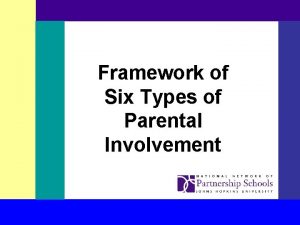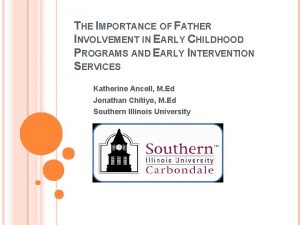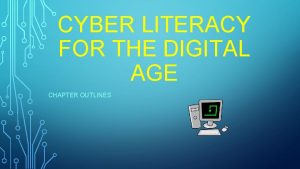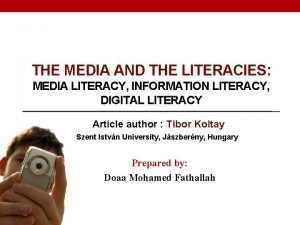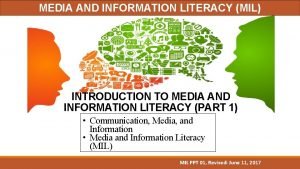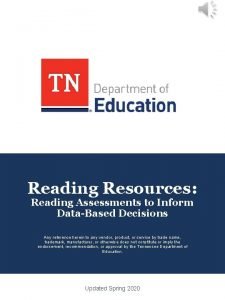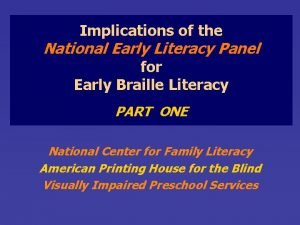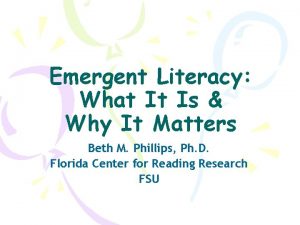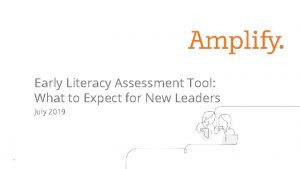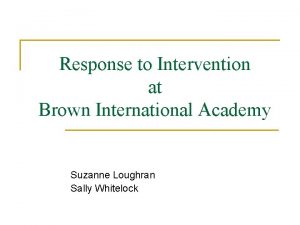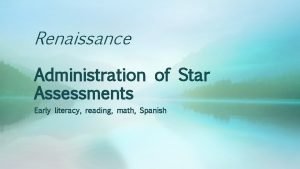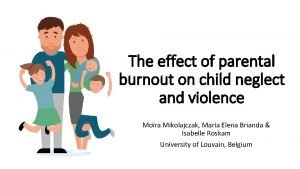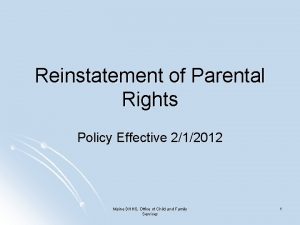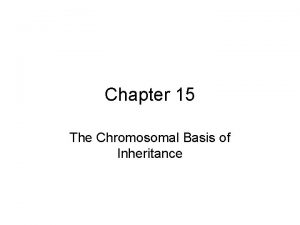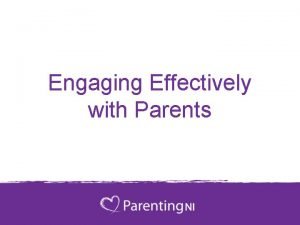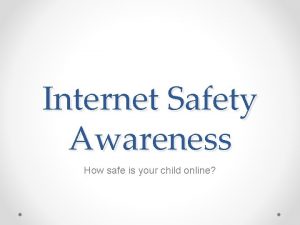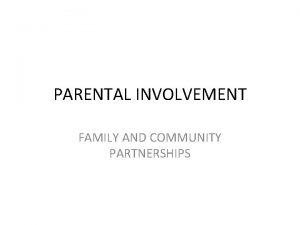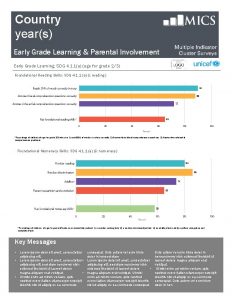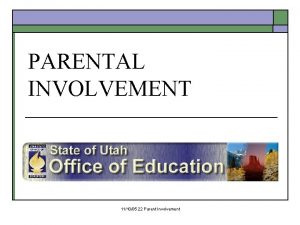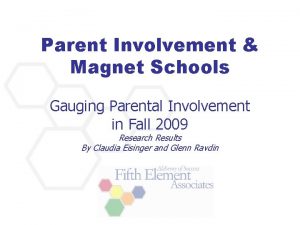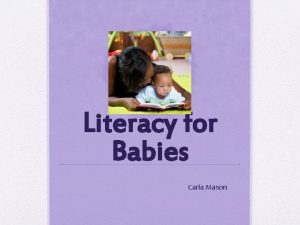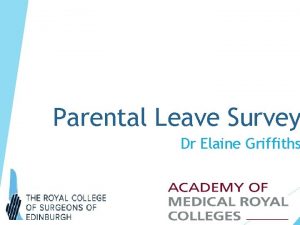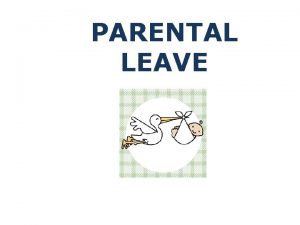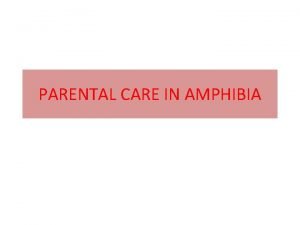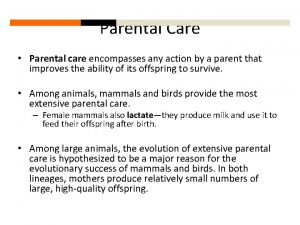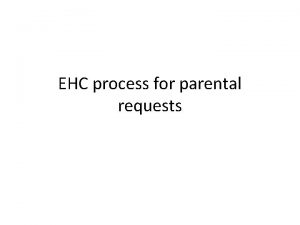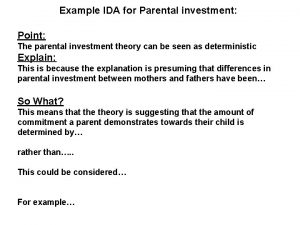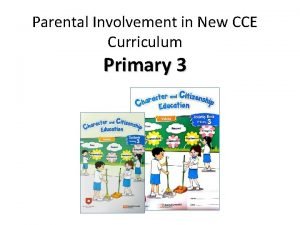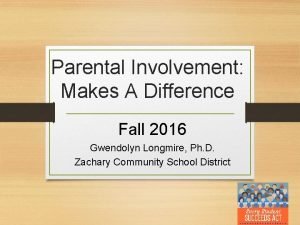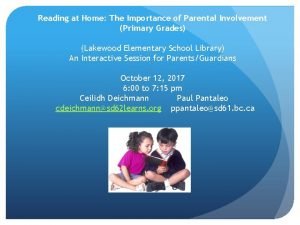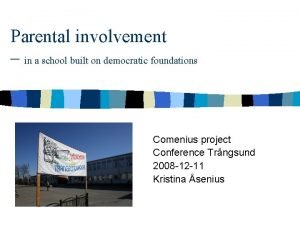The Effectiveness of Parental Involvement in Early Literacy


























- Slides: 26

The Effectiveness of Parental Involvement in Early Literacy Development By: Meredith Seay Graduate Program: Reading, Literacy and Learning Longwood University

Early Literacy Development Grades pre-kindergarten to second Letter names, letter-sound correspondences, decodable texts Effectiveness of giving parents literacy instruction

Importance Parents and teachers who interact with children this age Greater literacy cultures in home and communities “The literacy-related experiences that young children have at home-before they begin formal schooling-provide a foundation for the development of their reading and writing skills” (Robins, Rosales, Treiman 2014). Benefits of the extra instruction and involvement

Possible Risk Factors Single-parent status Socioeconomic status Parent depression

How to Help Communicate Provide parents with instruction Provide resources on how to create a rich home literacy environment (HLE) http: //www. readingrockets. org/article/home-literacyenvironment-checklist

What Research Says “. . . advantageous to plan a training program for interested parents to assist with home reading instruction” (Faires, Nichols, Rickelman, 2000. ) “…parental involvement in writing… seems effective in fostering children’s writing skills” (Alves, Camacho, 2017).

What Research Says Cont. “…have children who demonstrate positive engagement with their peers, adults, and learning” (Cohen, Fantuzzo, Hampton, Mc. Wayne, Sekino, 2004). “…increased vocabulary, which consequently results in preschoolers’ proficiency of decoding skills” (Im, Kim, Kwon, 2015).

What Research Says Cont. “…they can become active and resourceful” (Faires, Nichols, Rickelman, 2000).

Benefits of Providing Instruction Home School Connection Motivation to Learn

Benefits of Providing Instruction Cont. Increase students’ reading levels (Faires, Nichols, Rickelman 2000). Increase students’ text length and quality of their writing (Alves, Camacho, 2017). Parents = more active, resourceful, & involved Home literacy environment (Cohen, Fantuzzo, Hampton, Mc. Wayne, Sekino, 2004).

Successful Programs: Cultivating Writing Brief group intervention designed for parents of beginning writers 48 second grade students One public elementary school located in Porto Metropolitan Area (22= intervention group, 26= waiting group) 4 sessions lasting 75 minutes each over 10 weeks 4 narrative texts selected where intervention group completed each at home and waiting group completed at school alone

Successful Programs: Cultivating Writing Cont. All five teachers met regularly to ensure that they had similar instruction practices Checked homework completion and provided feedback to all children Child measures: transcription skills, writing enjoyment, and writing performance Parent measures: registered the steps carried in each of the assignments with their children and answered a satisfaction questionnaire about the intervention program.

Successful Programs: Cultivating Writing Cont. Results: Transcription Skills- Significant difference between the two groups Writing Enjoyment- No significant difference revealed Writing Performance- Significant difference in story elements, fluency, vocabulary and text quality Interaction Log: Significant difference in praises in the fourth writing assignment Parents were satisfied with the program

Successful Programs: Reading Recovery; Books in Bags Model To “recover” children at early ages that are having problems in beginning reading 4 parents/children participating (experimental group) and 4 parents/children not participating (control group) Various races and SES First-grade urban classroom in a major city in Southeastern United States

Successful Programs: Reading Recovery; Books in Bags Model Cont. Letter Sent Home First Training Session Second Training Session First Morning Lesson Cont. Pre/Post Assessment

Successful Programs: Reading Recovery; Books in Bags Model Cont. Results: With the effect use of running records, t-tests, and a teacher journal as post-assessments at the end of the five weeks, the researchers concluded that a significant difference occurred in the amount of growth in reading levels for students receiving treatment. The average control-group improvement was 2 points from the pretest to the posttest while that for the experimental group was more than twice that much (i. e. , 4. 5 points)” (Faires, Nichols & Rickelman, 2000).

Not All Are Successful Have not found any programs that focus on parental involvement in early literacy development that are not successful

Recommendations Collaborate with Reading Specialist/Literacy Coach Create HLE “It may be that children who experience literacy-rich home environments have more opportunities to practice in more complex language skills and diverse vocabulary. ” (Im, Kim, Kwon 2015). Have conversations with your children

Best Practice Writing Instruction: Encouragement of HLE Parents provide praises and positive feedback on writing “Dictation to a Scribe”/”Family Journal”

Best Practices Cont. Reading Instruction: Encouragement of wordless pictures books and decodable texts at home David Wiesner = wordless picture book author

Best Practices Cont. Invite parents to read a book to the whole class Encourage parents to make audio or videotapes of their children reading

Future Research Is the growth from parental involvement/training or just developmental? Perform this study with larger group? Parent depression?

Questions?

Citations Arnold, D. H. , Zeljo, A. M Doctoroff, G. I. , & Ortiz, C. (2008). Parent involvement in preschool: predictors and the relation of involvement to preliteracy development. School Psychology, Review, 37, 74 -90. Camacho, A. , & Rui, A. A. (2017). Fostering parental involvement in writing: development and testing of the program Cultivating Writing. Reading and Writing: An Interdisciplinary Journal, 30, 253 -277. Faires, J. , Nichols, W. D. , & Rickelman, R. J. (2000). Effects of parental involvement in developing competent readers in first grade. Reading Psychology, 21, 195 -215. Kim, S. , Im, H. , & Kwon, K. (2015). The role of home literacy environment in toddlerhood in development of vocabulary and decoding skills. Journal of Research and Practice in Children’s Services, 44, 835 -852.

Citations Cont. Le. Fevre, J. , & Sénéchal, M. , (2002). Parental involvement in the development of children’s reading skill: a five-year longitudinal study. Child Development, 73, 445 -460. Mc. Wayne, C. , Hampton, V. , Fantuzzo, J. , Cohen, H. L. , & Sekino, Y. (2004). A multivariate examination of parent involvement and the social and academic competencies of urban kindergarten children. Psychology in the Schools, 41, 363 -377. Robins, S. , Treiman, R. , & Rosales, N. (2014). Letter knowledge in parent-child conversations. Reading and Writing: An Interdisciplinary Journal, 27, 407 -429. Rush, K. (1999). Caregiver-child interactions and early literacy development ofpreschool children from low-income environments. Topics in Early Literacy Childhood Special Education, 19, 3 -14.

Contact Information Meredith Seay Longwood University Reading, Literacy and Learning meredith. seay@live. longwood. edu
 Six types of parental involvement
Six types of parental involvement Father involvement in early childhood
Father involvement in early childhood Independent blogger pas or pin
Independent blogger pas or pin Cyber literacy for the digital age
Cyber literacy for the digital age Venn diagram of media information and technology literacy
Venn diagram of media information and technology literacy Venn diagram media and information literacy
Venn diagram media and information literacy Acadience reading assessment
Acadience reading assessment National early literacy panel
National early literacy panel Early emergent literacy
Early emergent literacy Early literacy skills checklist
Early literacy skills checklist Acadience benchmark goals
Acadience benchmark goals Brown international academy
Brown international academy Https://www.renaissance.com log in
Https://www.renaissance.com log in Early cpr and early defibrillation can: *
Early cpr and early defibrillation can: * Parental burnout symptoms
Parental burnout symptoms Parental dna
Parental dna Alimentos derivados de la responsabilidad parental
Alimentos derivados de la responsabilidad parental Termination of parental rights maine
Termination of parental rights maine Amy jl baker
Amy jl baker Parental phenotype
Parental phenotype Male parental investment
Male parental investment Tefra tax
Tefra tax Parental dna
Parental dna Parental melt
Parental melt Contrle parental
Contrle parental Default bt parental pin
Default bt parental pin Recombinant vs parental
Recombinant vs parental
